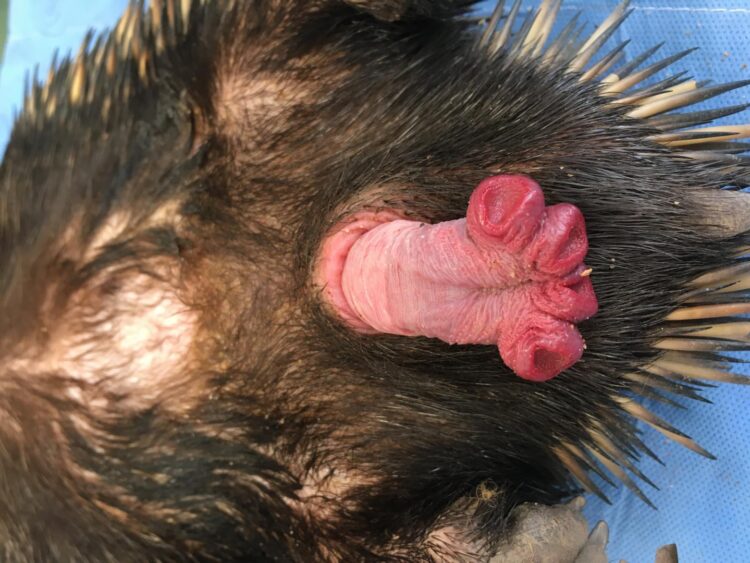Scientists explain why echidna penis is ‘weird’
Scientists from the University of Melbourne and University of Queensland have revealed the mystery behind the unique reproductive parts of the much-loved echidna.
In the paper, “The Unique Penile Morphology of the Short-Beaked Echidna, Tachyglossus aculeatus”, the team detail how the male monotreme’s testes never descend, have no scrotum, and when not in use, their penis is stored internally.
They also detail how the echidna penis has four heads, which are actually rosette-like glans at the end. Just two of the four glans ever become functional during erection and which glans are functional appears to alternate between subsequent erections.
###
The research is a collaborative project involving scientists from the University of Melbourne, University of Queensland and Monash University, and the Currumbin Wildlife Sanctuary on the Gold Coast, which has established a small breeding colony of echidnas.
The research is now published in the journal Sexual Development.
Media Contact
Lito Vilisoni Wilson
[email protected]





